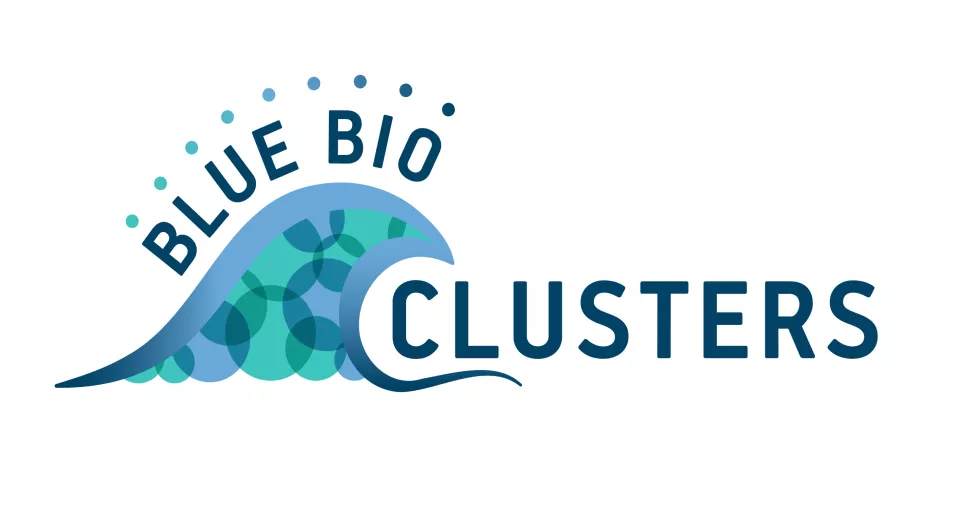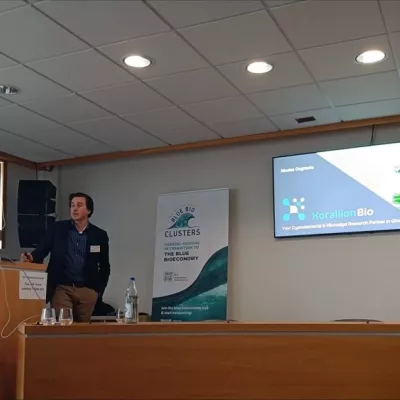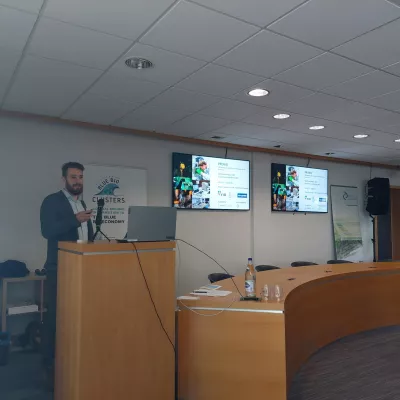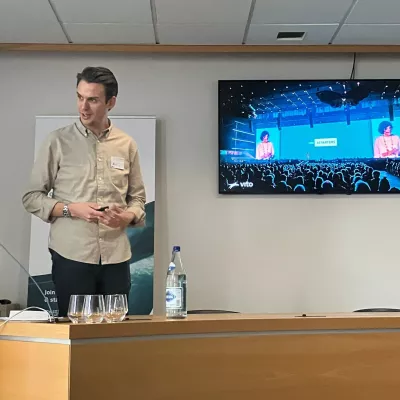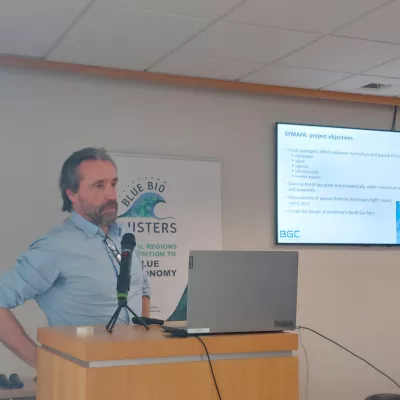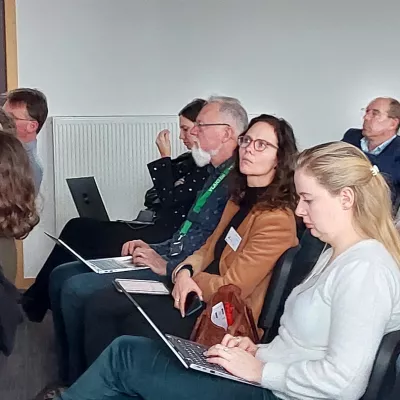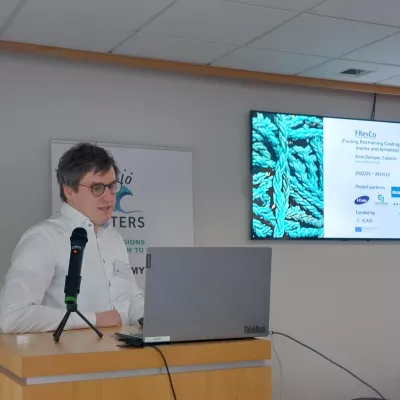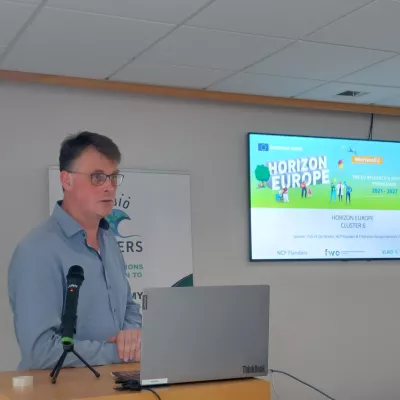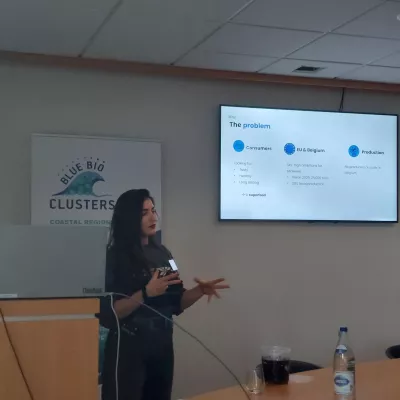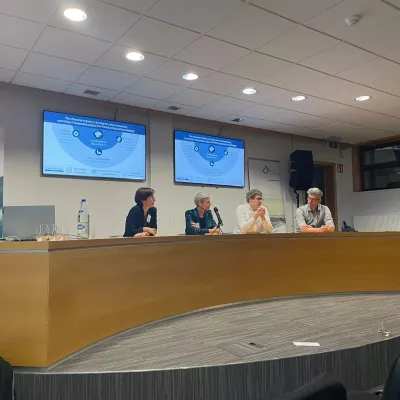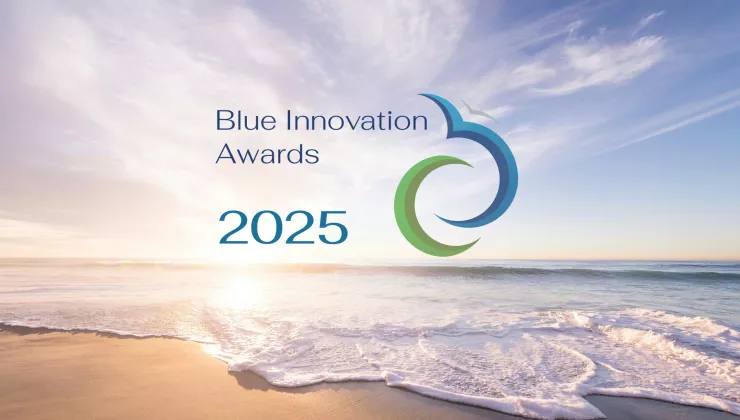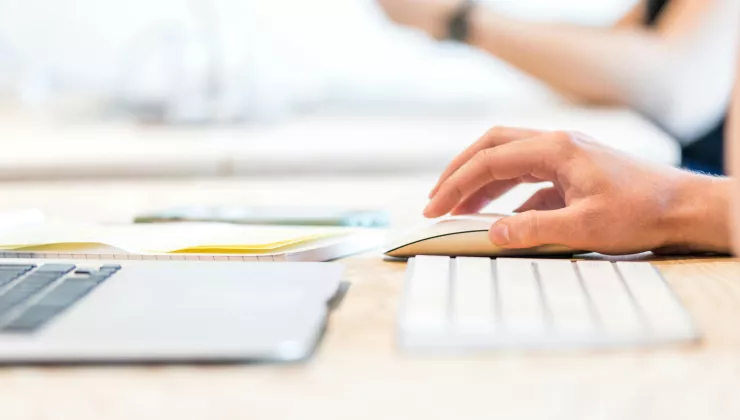Looking back on a successful Blue Bioeconomy Session
On February 29, Blue Cluster organized a Blue Session on the blue bioeconomy. This Blue Session was built around three central themes: inspiring projects and calls; the BlueBioClusters project and empowerment tools for innovative starters; and a panel discussion on demand-driven innovations both within and outside the blue economy.
A brief summary of this interesting Blue Session can be found below.
Inspiring projects and calls
In the first session, participants were introduced to various innovation projects from knowledge institutions and companies that receive funding through VLAIO and Blue Cluster. Innovative techniques and products that can bring water organisms or their derivatives to various sectors were discussed in more detail.
Blue Cluster also presented its new call for innovation projects, and Patrick De Molder explained the various European Union funding programs. The number of such programs clearly shows that the EU is committed to the production of Blue Bio.
BlueBioClusters and empowerment tools for innovative starters
In the second session, the audience was able to learn how start-ups are advancing their innovations towards the market:
- Start-ups Oceanbites and Nomet are convinced that macroalgae will become an important part of our future healthy and sustainable diet and are firmly committed to this.
- KorralionBio and Gro2 look at how high-quality raw materials (including microalgae and microbial proteins) can be produced from residual flows with a range of applications.
- Omni-Co develops technologies that can help the fishing sector become more sustainable. This includes automatic analysis of fish catch and more efficient fuel consumption.
The programme was followed by presentations from BlueBioclusters, Marifish.Inc, VITO4STARTERS and Biotope that highlighted where start-ups can find support for their further development.
Demand-driven innovations both within and outside the blue economy
We concluded the event with an interactive panel discussion moderated by Jurgen Adriaen (De Blauwe Cluster) with representatives from different sectors. Isabelle François (MEDVIA), Isabel De Schrijver (Centexbel), Aron Deneyer (Catalisti) and Mark Bolle (Vlaanderen Circulair) joined the table.
Key takeaways from the panel discussion:
- The added value of bio-active compounds must be scientifically supported.
- Compared to wildly harvested raw materials, controlled cultivation will ensure solid quality of biomaterial.
- For applications in other sectors, volumes and price margins are very important to be competitive with existing raw materials.
- Adjusted regulations for a more sustainable industry can support the implementation of blue bio-raw materials.
To support companies in this transition, the government should create a regulatory framework. Furthermore, consumer awareness is very important. It is necessary to reach out to the general public more frequently, so that people become more aware of their livelihood and their environment.
Networking
After the event people had the opportunity to engage in further discussion and networking while enjoying all kinds of products from the blue bioeconomy:
- chocolates with micro or macro algae;
- oysters from the Ostend Spuikom;
- fish from the Belgian North Sea;
- tropical prawns farmed in Flanders;
- croquettes filled with macroalgae; and
- beers with macroalgae or shrimp components.
We would like to thank all speakers for their presence, and all attendees for their cooperation in this successful (and tasteful) event.
More schwung in the Blue Bio?
To further develop the Blue Bioeconomy in Europe, we have set up a specific matchmaking system as part of the BlueBioclusters project: BlueBioMatch.
Join this broad community of blue bio entrepreneurs, innovators, start-ups and researchers, and find your partner for your activities in the blue bioeconomy.
